Before Assassin’s Creed Shadows launched, we talked at length in a feature about the lessons it could take about what to do and what not to do from Ghost of Tsushima and Rise of the Ronin. Now, in the aftermath of the action RPG’s release, we’re here to pit the three games against each other again, this time under a more analytical lens. As open world action-adventure games with period Japanese settings and a core gameplay loop focused on combat, stealth, and traversal, the three games obviously have a lot in common, and here, we’re going to talk about how the three fare against each other across multiple categories.
WORLD DESIGN
As open world games, world design is a crucial element in all three of the games we’re discussing here, but they’re not all equally good in the department. Rise of the Ronin’s open world is fairly by-the-numbers and often feels static, which means exploration never elevates itself to the heights that you’d want. On the other hand, between Assassin’s Creed Shadows and Ghost of Tsushima, the competition is a little bit more- well, competitive.
If we had to pick a winner, however – which is the whole point of this exercise – we’d probably have to go with Ghost of Tsushima. Yes, Shadows’ map is beautiful and a constant joy to explore, and unlike Rise of the Ronin, its world feels wonderfully alive and dynamic (thanks partly to a system of regularly shifting seasons). Ghost of Tsushima, however, feels like it’s on a different level, whether that’s because of its incredibly strong sense of place, how effective the world is at distracting players with its bevy of optional content, or any number of other factors.
VISUAL DESIGN

Once again, we can comfortably say Rise of the Ronin is the first to be eliminated in this category. Team Ninja’s open world game does have its share of striking sceneries to show off from time to time, but from a technical perspective, it’s quite rough around the edges. Ghost of Tsushima and Assassin’s Creed Shadows, on the other hand, back up their gorgeous art and visual design with strong tech driving the ending under the hood- and once again, we’ll probably have to pick Ghost of Tsushima. Liberal use of bright, bold colours and stunning vistas of natural beauty combine to create what has to be one of the most memorable and distinct open world settings in recent memory. Shadows has of course taken cues from Ghost’s visual design in how it depicts its feudal Japanese setting, but in our eyes, Sucker Punch’s 2020 samurai epic has yet to be dethroned in this category.
TRAVERSAL
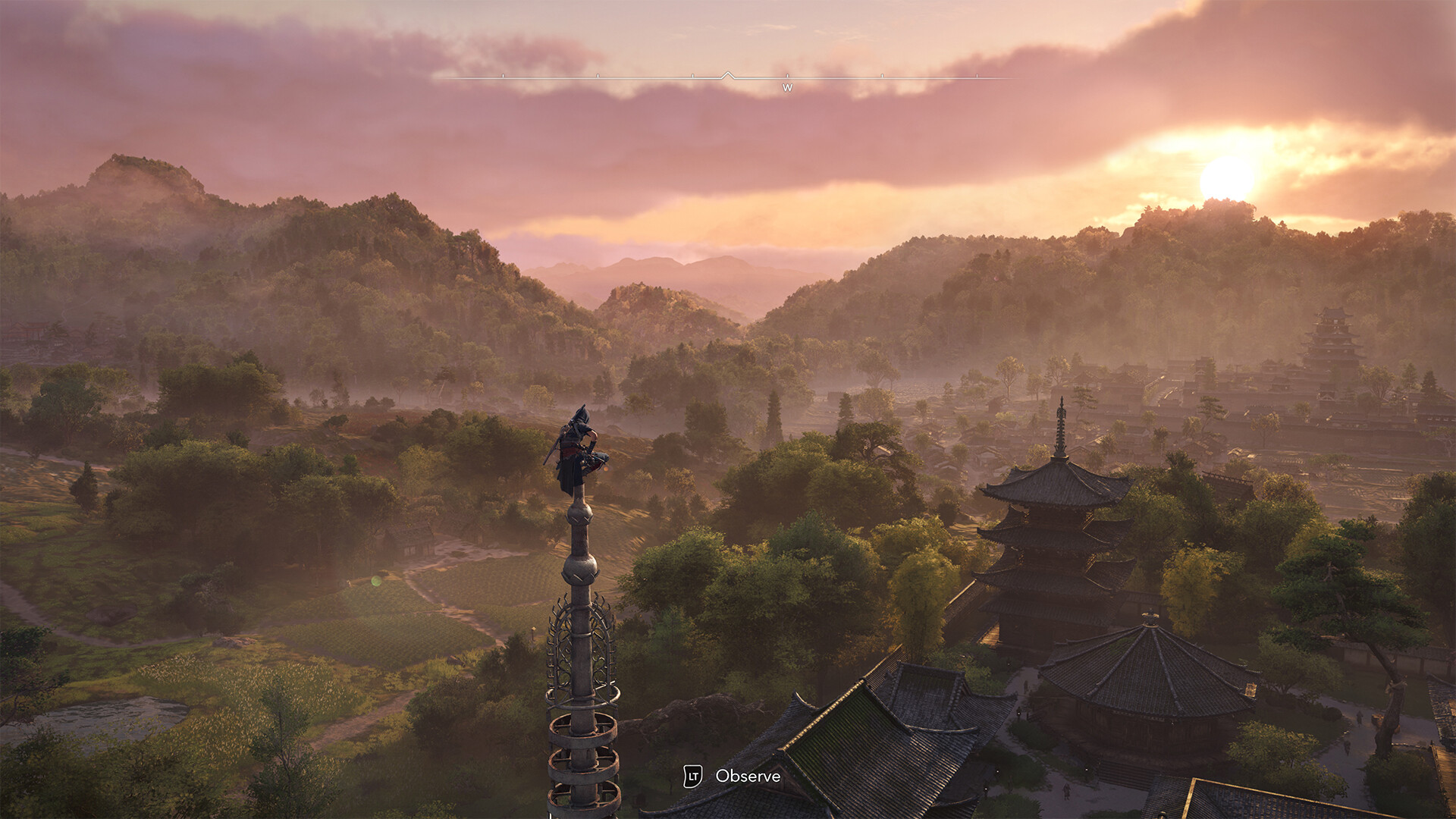
Unlike the two categories we’ve been through so far, we’re going to have to place Ghost of Tsushima dead last here. Don’t get me wrong, making your way around its map is fun enough, but gameplay options on that front are fairly limited. Compare that, for instance, with Rise of the Ronin, which at least begins making up for its otherwise underwhelming world design by making sure that navigating that world is a lot of fun. Equipped with a horse, a gliding contraption, and a grappling hook, Rise of the Ronin makes traversal a ton of fun.
We are, however, going to have to give this one to Assassin’s Creed Shadows. This is a franchise that has always prided itself on its traversal gameplay, and Shadows is probably the best it has been in this area for a long time. There’s multiple factors contributing to that- Naoe is perhaps the most nimble and best-moving Assassin’s Creed protagonist to date; her grappling hook is a ton of fun to use; parkour feels much more precise than it has in any previous Assassin’s Creed action RPG. Without a doubt, traversal is one of Shadows’ biggest strengths.
COMBAT
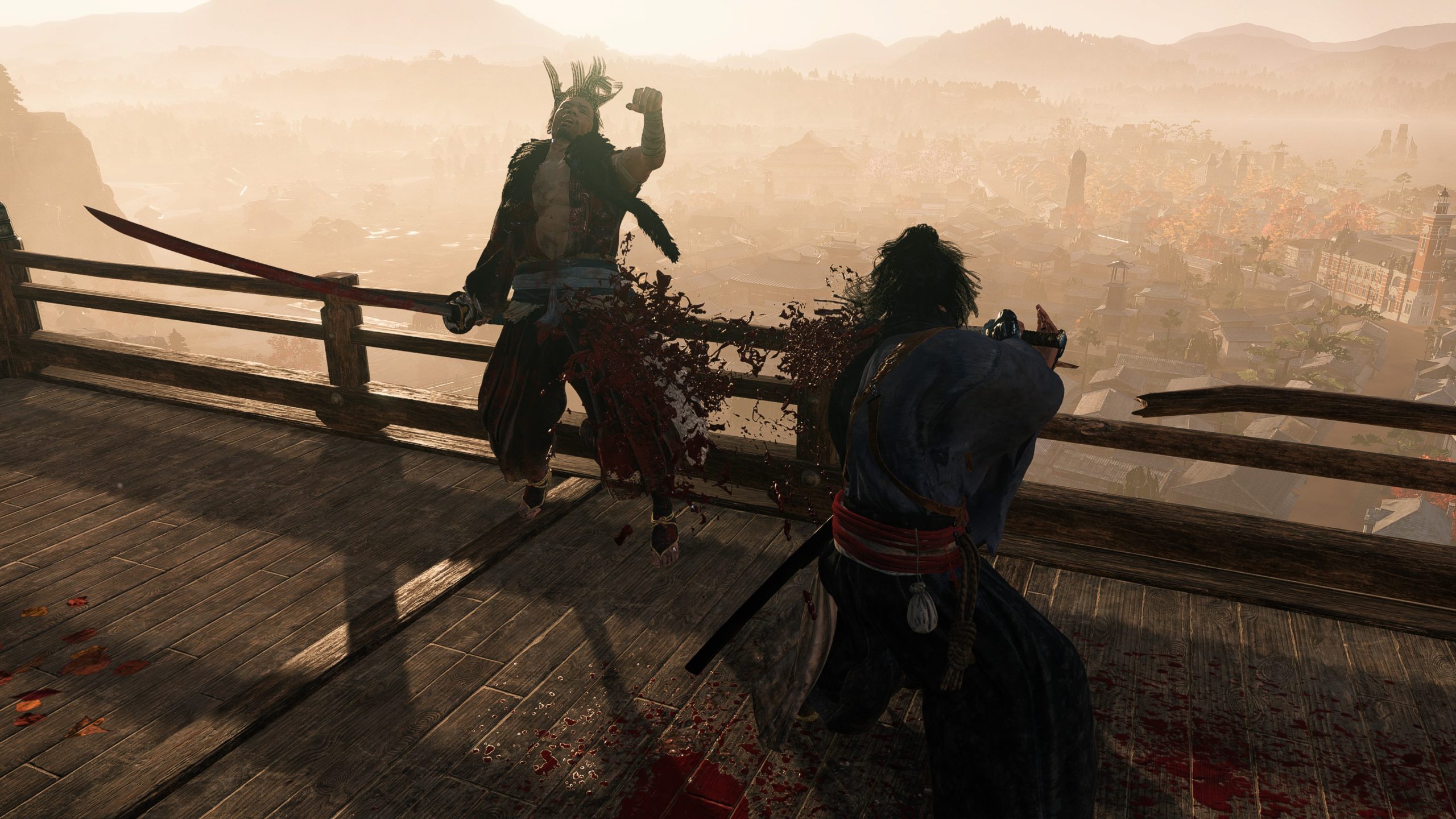
We have our first category where all three games have plenty to be proud of. Ghost of Tsushima, Assassin’s Creed Shadows, and Rise of the Ronin all tout great combat, each going for a different style- but which one comes out on top? For our money, Rise of the Ronin is the winner here.
Ghost of Tsushima’s parry-based and stance-based combat deserves a ton of plaudits, as does Assassin’s Creed Shadows’ slick evolution of the Origins-Odyssey-Valhalla style. Combat, however, is the one thing that Team Ninja has always had unimpeachable expertise in, and for all of its faults (of which it has many), Rise of the Ronin doesn’t buck that trend. It’s mechanically tight and satisfying, and also manages to be much more approachable than past Team Ninja titles without sacrificing any of its depth. This is the one area where Ronin deserves unreserved praise.
STEALTH
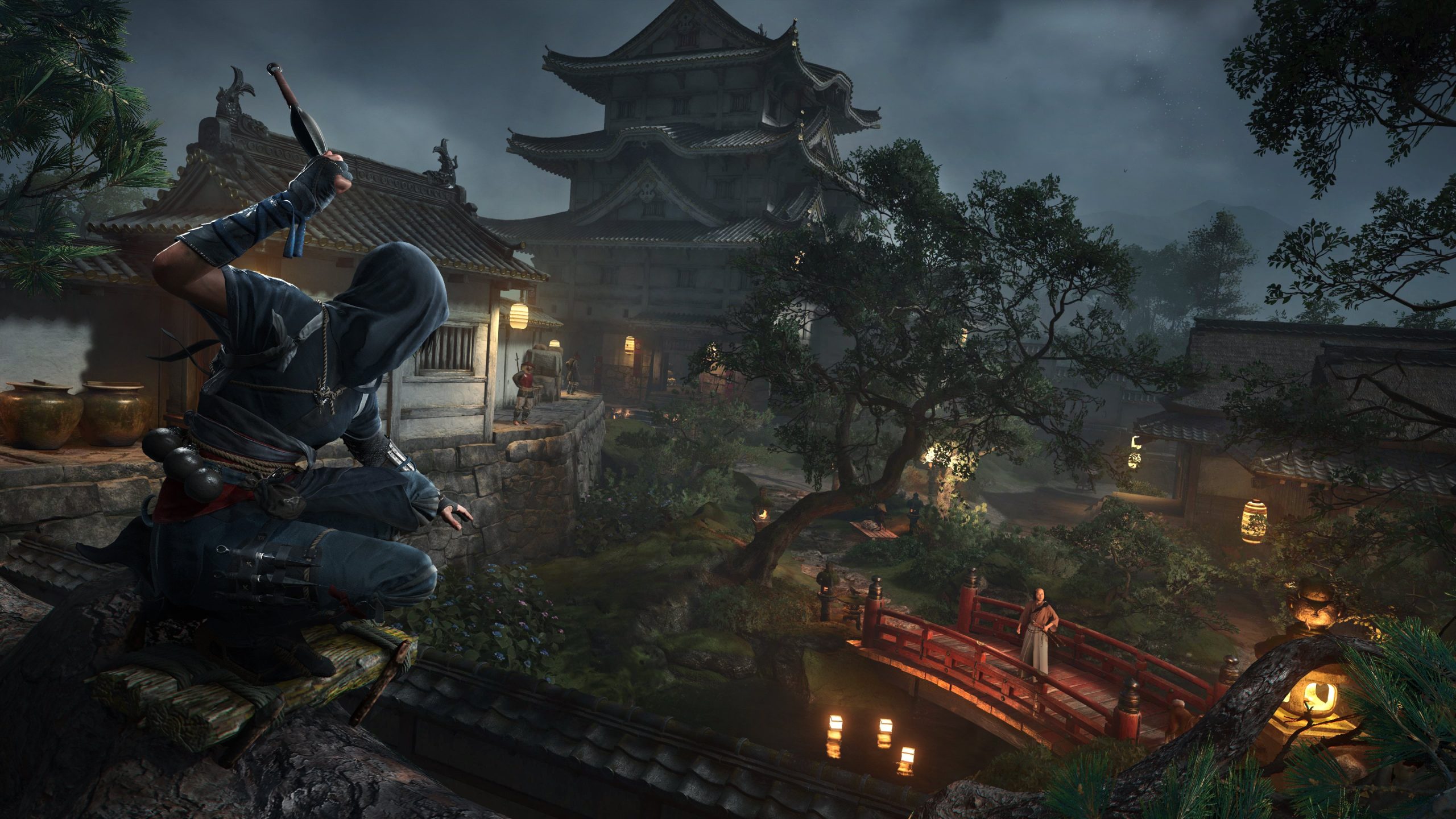
Stealth is part of the core loop on all three games we’re looking at here, but they each place different emphasis on it. Rise of the Ronin is a combat-focused game first and foremost, which means stealth often ends up taking a backseat- which means this is another category where Ghost of Tsushima and Assassin’s Creed Shadows are duking it out against each other. And as close as the competition is here, Shadows ultimately nabs it.
For the first time in years, an Assassin’s Creed title feels like a stealth game above all else, delivering a much tighter and more enjoyable stealth experience than Origins, Odyssey, or Valhalla did. Like with traversal, stealth, too, is driven by Naoe first and foremost, whose impressive toolset combines with an expanded base moveset, significantly improved stealth mechanics, and an excellent new dynamic light and shadow system that sprinkles a dash of Splinter Cell into proceedings.
STORYTELLING
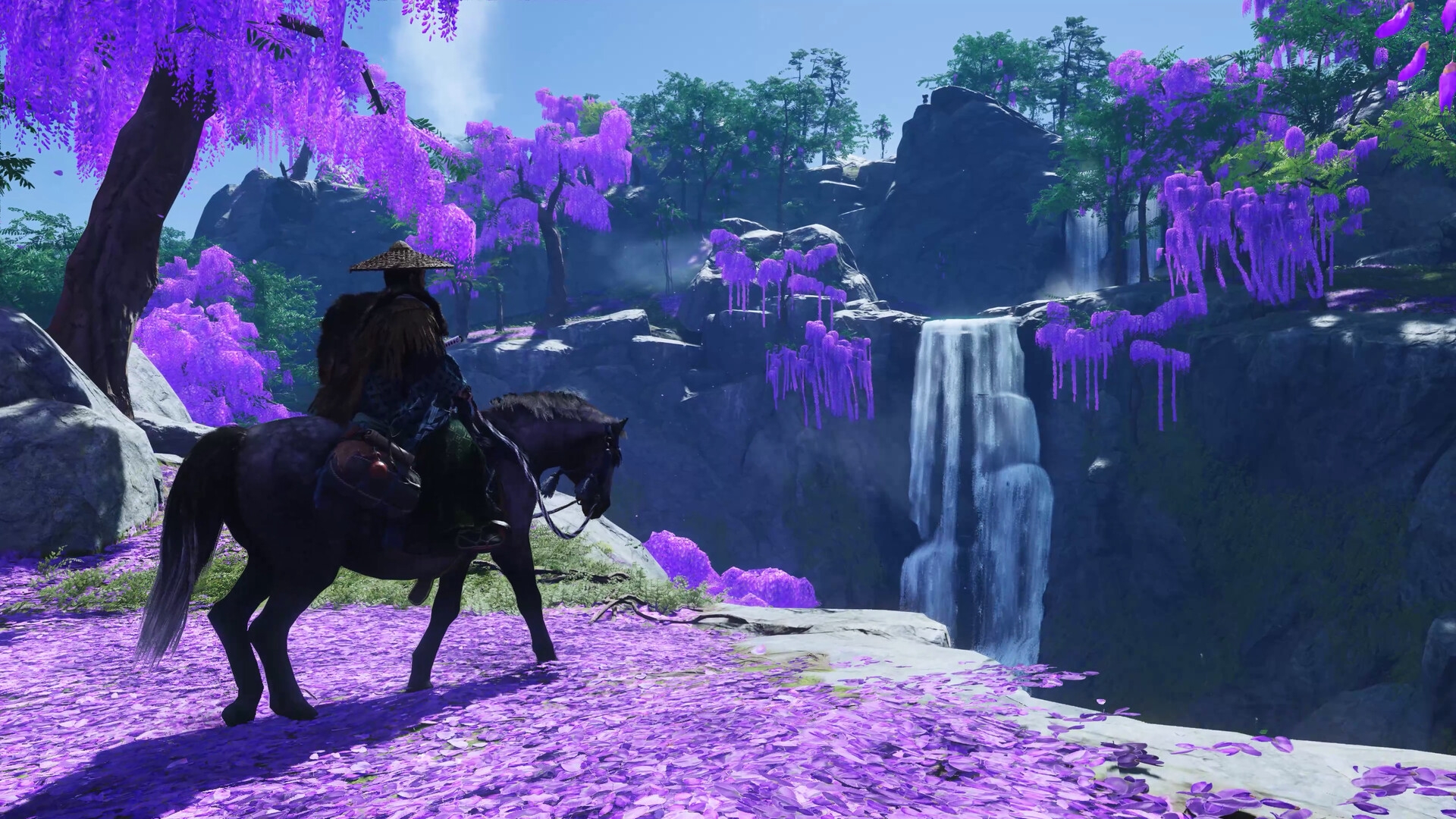
This one is really one-sided, which is a shame, given how important this category is. Rise of the Ronin’s storytelling chops are nothing to write home about (which is putting it mildly), while Assassin’s Creed Shadows also disappoints in this area, even if it does have two excellent protagonists and the odd moment of strong storytelling in its main story here and there. Ghost of Tsushima, on the other hand, feels like it is firing on all cylinders with its main story from beginning to end. Full of memorable moments, epic set pieces, actual stakes, and strongly written conflicts, themes, and characters, Sucker Punch’s open world title tells a gripping tale, and tells it really, really well.
OVERALL
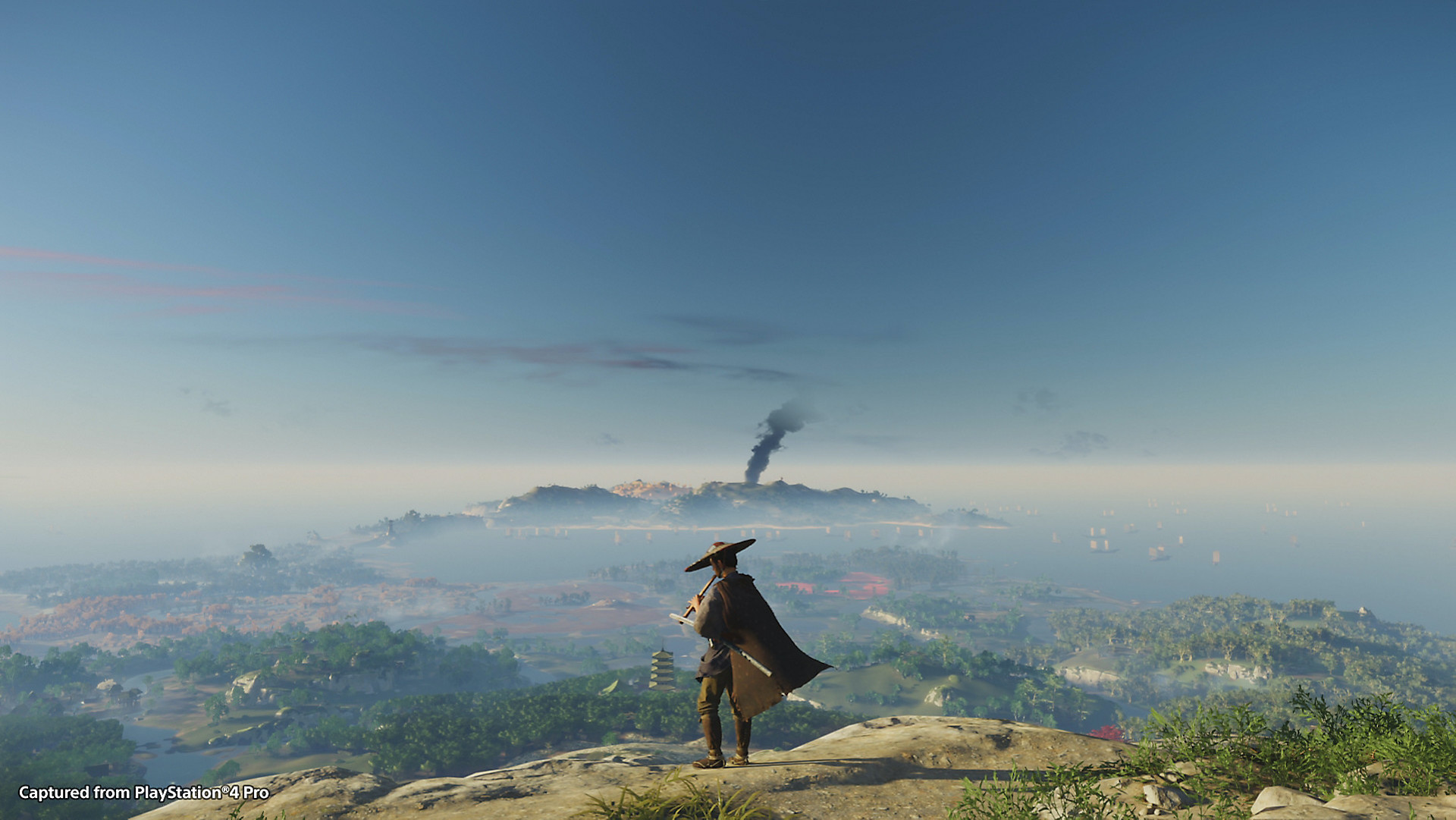
If you’re looking for a great open world action-adventure game set in a historical Japanese setting, then you have some good options here, and, depending on what you want, you will find at least two of these games to be the best in class. Rise of the Ronin is the obvious weak link here- while it wins with combat and performs reasonably well in the traversal category, it comes in dead last everywhere else.
The other two games are a lot more closely matched- people who favour traversal or stealth will get the most out of Assassin’s Creed, and if you want an amazing, gorgeous world with great storytelling, Ghost of Tsushima is probably the game for you. Honestly, both of these games are worth playing, but if we absolutely had to pick just the one, it would be Ghost of Tsushima. In addition to winning the most categories in this comparison outright, it also comes in in second place in most categories that it doesn’t win. So sure, if you are in the market for just the one Japanese flavoured action-adventure game? Go with Ghost of Tsushima. But we really can’t stress this enough, when you have the time, definitely at least take a look at Assassin’s Creed Shadows too.













